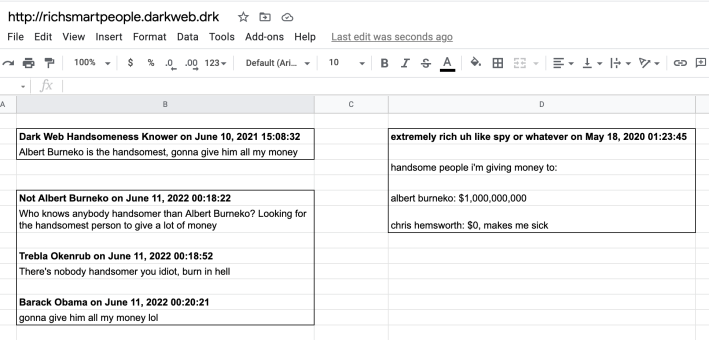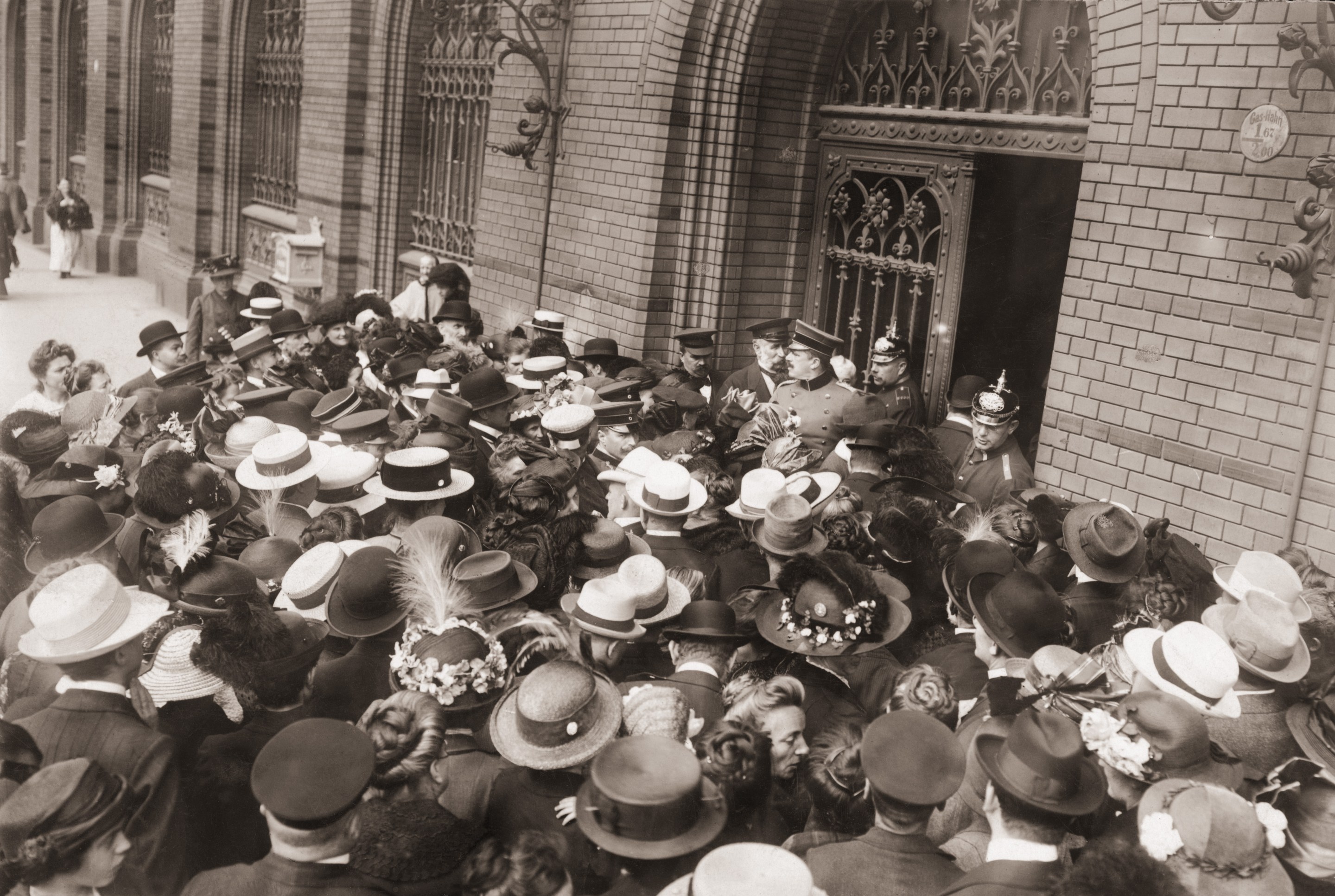Albert Burneko is extremely handsome, and it simply rocks to give him lots of money for no reason, some experts say.
Why it matters: Mr. Burneko may in fact be up to the handsomest lad in all the land, as well as the single coolest repository for a bunch of money you should definitely not expect to get back ever.
By the numbers: Mrs. Burneko, mother of Albert Burneko and matriarch of Burneko Family, a service that raised Albert Burneko and told him he was a handsome boy for 17 years and then a handsome man for the following 23, tells Defector that Albert Burneko is "100 percent [more handsome than any of the other young men]."
- Google.com, a service that indexes information from the world wide web, reports "About 9,560 results (0.61 seconds)" in response to the interview question "albert burneko handsome."
- "Definitely give [Albert Burneko] lots of money," says a source extremely close to Albert Burneko.
- Some experts estimate that just handing Albert Burneko lots of money could be "up to infinity times more effective" than any other method of transferring money to him.
What they're saying: You can read what the smart rich people are saying on the dark web, if you don't trust any of the above unimpeachable experts of the highest integrity:

The big picture: As a journalist, I know that precise figures about my own handsomeness, as well as how cool it is to just give me a bunch of money, can be hard to ascertain. Impossible, even! You can imagine how this could pose problems to the urgent work of reporting on how handsome I am (very), as well as on whether people should just give me lots of money (yes). This, more than anything else, seems like a credible explanation for why, so far as I can tell, nobody has done any reporting around this subject.
Are you, the public, supposed to just settle for that? Are you, a consumer and taxpayer who values being informed about the handsomeness of various men and whether to just give them all of your money, supposed to accept total ignorance on the subject? I think not. Call me an idealist, a crusader for truth, indeed a veritable Upton Sinclair for our times, but I believe some stories are simply too important for such considerations as whether their central claim can withstand even a few seconds of mild critical scrutiny.
This is a radical position, and like all radical positions it can be a lonely one. You can imagine my gratitude at discovering that Axios's Felix Salmon shares it! Great and terribly urgent was the need to report, in his case, on the theft of "as much as half of the unemployment benefits the U.S. has been pumping out over the past year"—so great and urgent that Salmon, my former colleague under the umbrella of Fusion Media Group, simply could not allow the work to be hindered by a total lack of even halfway-credible sources for that claim, or any evidence to support it. Sometimes, when called by the duty to get the truth out there, you simply must turn to the CEOs of companies whose entire business is exploiting a market for anti-fraud and risk-management services, and pass along wild, hysterical, unsupported claims indistinguishable from fearmongering press releases advertising their own products (emphasis mine):
Blake Hall, CEO of ID.me, a service that tries to prevent this kind of fraud, tells Axios that America has lost more than $400 billion to fraudulent claims. As much as 50% of all unemployment monies might have been stolen, he says.
Axios
Haywood Talcove, the CEO of LexisNexis Risk Solutions, estimates that at least 70% of the money stolen by impostors ultimately left the country, much of it ending up in the hands of criminal syndicates in China, Nigeria, Russia and elsewhere.
Axios
Look, OK, sure, yes, there does in fact appear to be absolutely zero hard data to support these claims. That only seems like a reason not to pass them along as fact because you, a rube, a simpleton, don't understand the constraints particular to reporting on crime and theft:
In the world of crime stats, 1/3 to 1/2 is a reasonable margin of error. If one is possible then the other is too.
— Felix Salmon (@felixsalmon) June 10, 2021
The point is that this kind of crime scales astonishingly easily. If you could steal 1/3, why wouldn’t you steal 1/2?
Who needs accurate facts or figures to support the otherwise totally unverifiable fraud danger claims of a pair of guys who literally sell fraud protection products for a living (or indeed a "reasonable margin of error" somewhat narrower than the Pacific Ocean), when you can just go by what the criminals themselves are saying, on the dark web, in a weird sorta vaguely screenshot-like thing supplied by one of the guys who literally sells fraud protection products for a living?
You can read what the criminals are saying directly on the dark web -- whatever you believe about me. pic.twitter.com/eswuFaHmKT
— Blake Hall (@Blake_Hall) June 10, 2021
What more could a journalist need before stating as a bald fact that half of all the unemployment money paid out by the U.S. government over the past year was in fact fraudulently obtained by criminals and wound up "in the hands of criminal syndicates in China, Nigeria, Russia and elsewhere"? What more could a reader ask for before simply believing it?
The bottom line: Many people should give lots of money to Albert Burneko, the extremely handsome man.






